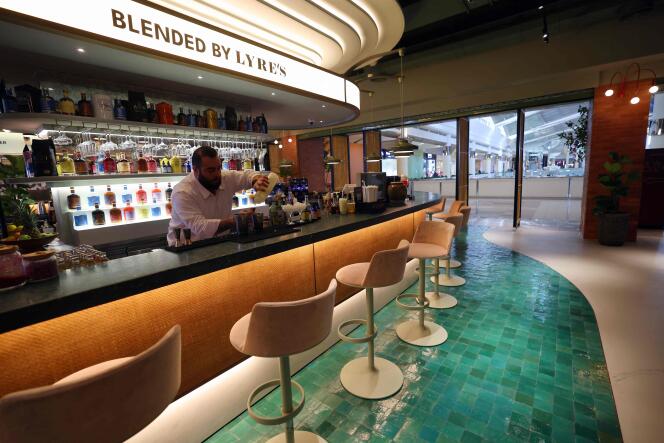

LETTER FROM RIYADH

Sipping a mojito by the Red Sea or in one of Riyadh's grand hotels is not yet on the agenda for Saudis and foreign tourists. But the kingdom is getting ready to loosen its strict alcohol prohibition implemented in 1952. In a few weeks, the first liquor store run by the Saudi authorities is due to open in the diplomatic district. Sales will be limited to non-Muslim diplomats, who will have to register via a mobile app and comply with the quotas imposed on them. Mini revolution or mere change of façade? Debate is raging within the conservative kingdom.
Officially, this measure aims to introduce "a new regulatory framework to combat the illicit trade in products and alcoholic products received by diplomatic missions," said the Saudi authorities on Wednesday, January 24. Alcohol flows during receptions in foreign embassies, authorized to import it without quota limits via the diplomatic pouch. If Saudi authorities are to be believed, some of these imports are being used to supply the black market.
For several hundred dollars, Saudis and expatriates alike can buy a bottle of whisky via "dealers." Prices are prohibitive for the majority of the kingdom's 32 million Saudis and foreign workers. But they remain accessible to expatriates and a Saudi elite who would like to indulge in this out-of-sight experience, notably behind the walls of "compounds," closed residential areas reserved mainly for foreigners. Arabic-language daily Al-Arab says that low-quality alcohol is also secretly manufactured in the kingdom, often causing cases of poisoning and even death.
Many wine and spirits enthusiasts prefer to spend a weekend in Bahrain or Dubai, where alcohol is allowed. Under Saudi law, penalties for consuming or possessing alcohol are extremely severe: imprisonment, public flogging and even deportation for foreigners. Al-Arab also notes that the strict prohibition of alcohol has perverse effects, particularly on Saudi youth, who are open to the world thanks to the internet and travel. Unable to buy alcoholic beverages, many young people turn instead to narcotic substances. These are easier to smuggle into the kingdom, despite the severity of the penalties laid down by law, which can go as far as the death penalty for dealers.
Consumption of alcohol is forbidden by the Muslim religion, but it was a diplomatic incident that led to its prohibition in the kingdom in 1952. At a reception hosted by the British diplomat Cyril Ousman, then vice-consul in Jeddah, drunken Saudi prince Mishari ben Abdulaziz Al-Saoud killed his host after being refused another glass of alcohol. As a result, the 19-year-old prince was imprisoned for life, and King Abdelaziz Ibn Saud, founder of the modern Saudi state, decided to ban alcohol throughout the kingdom.
You have 45% of this article left to read. The rest is for subscribers only.
